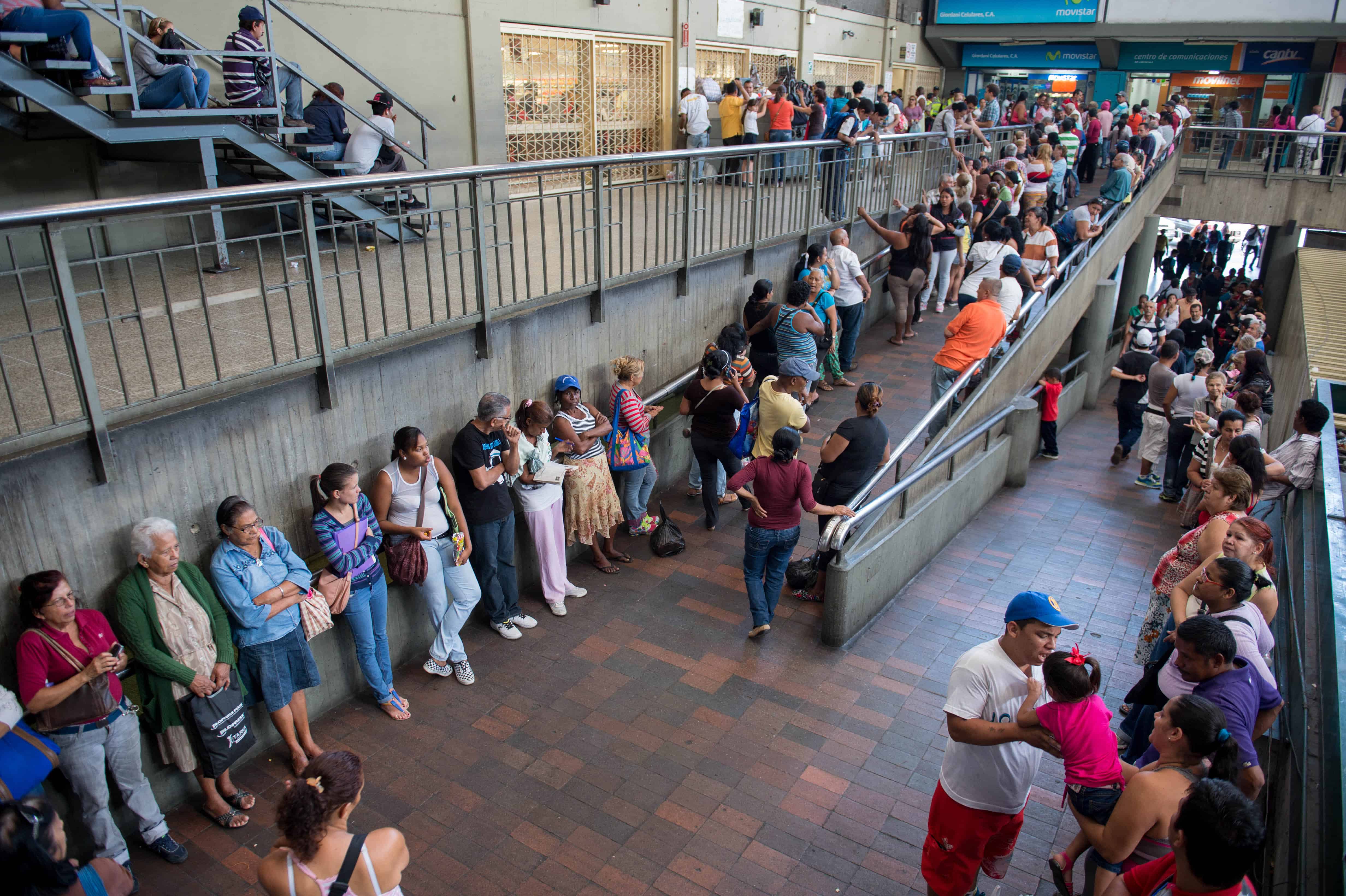CARACAS, Venezuela — Thirty years after leaving the poverty and violence of Colombia for oil-rich Venezuela, Óscar Mina, a 56-year-old construction worker, is heading home.
“Prices are going up every day and the money bills are worthless,” said Mina, sipping beer with compatriots in the Petare slum of eastern Caracas, militant graffiti on the walls, trash in the streets. “Is that governing for the poor?”
In a way, no group has benefited more from Venezuela’s socialist revolution of the past 15 years than the millions of Colombians who have moved here in recent decades. Free housing, education and health care turned them into rock-solid supporters of the late President Hugo Chávez.
So it is telling that tens of thousands of them are leaving — 200,000 in the past few years, according to Iván De La Vega, a migration scholar at Caracas’s Simon Bolivar University. As the Colombians’ disillusionment grows, it becomes clear that Chávez’s successor, Nicolás Maduro, is in deep trouble. His party, which already lost the support of the upper and middle classes, appears headed for defeat when congressional elections are held later this year.
In fact, despite a dearth of reliable data about almost everything in Venezuela, a March Datanalisis poll cited by the Washington-based consultancy Eurasia Group, shows 19 percent of voters choosing government candidates in the legislative elections compared with 43 percent for the opposition.
A move back to Colombia is all the more remarkable since Marxist guerrillas still control swaths of countryside there and 31 percent of the population live in poverty. Last month, 11 soldiers were killed by the guerrillas near Mina’s hometown.
It’s still worth going, said Gustavo Díaz, a Colombia native in Caracas who, like his compatriots, has done the jobs Venezuelans look down on in agriculture, building and household services. “Everyone who has any options is leaving,” Díaz, a 58-year-old construction worker, said.
With oil prices slumping, the final straw for many Colombians was Maduro’s ban on remittances last year in an attempt to save scarce foreign reserves and stave off default. Prior to that they could send wages home at the official exchange rate of 6.3 bolivars per dollar, which translated the minimum monthly wage at the time to about $520 dollars. This compared with a Colombian minimum wage of about $300.
Venezuela had the highest gross domestic product per capita in South America at the peak of the oil boom in 1976. By 2013, it was in fourth place.
Like poor foreign workers in most countries, Colombians have long been viewed with a measure of contempt here and tended not to advertise their origins. But with the reversal in fortunes, links with Colombia are suddenly sources of pride.
Many naturalized Venezuelans are in such a hurry to leave that they are not waiting to renew their expired Colombian documents. Colombian residency visas given to Venezuelan nationals rose 80 percent in 2014 from the previous year, according to the foreign ministry in Bogotá. Venezuelan passport holders were the biggest recipients of Colombian visas last year.
Colombians began crossing the eastern border en masse in the 1940s to escape the civil war and benefit from the oil boom in Venezuela. By the 1990s, they represented 77 percent of all migrants in Venezuela, according to Raquel Álvarez, a sociologist at the Andes University in Venezuela.
Many became voters. There are about 4.5 million Venezuelan citizens of Colombian descent, or about 16 percent of the population, according to estimates by De La Vega.
Once Latin America’s strongest currency, the Venezuelan bolivar has lost 76.7 percent since the start of last year. On the black market, the minimum wage of 5,600 bolivars is worth $20.
Henry Botero, 40, renewed his Colombian passport last year to travel to Bogotá to work informally in construction.
“I never imagined 10 years ago I would be in Colombia, putting up drywall in warehouses to feed my family,” Botero said in the border city of San Cristóbal on April 22. “Colombian passports used to be looked down on. Now everyone is trying to claim ancestry.”
Henry said he still prefers to keep his fiancée and child in Venezuela, to benefit from the free health care and education and near-free utilities and rent.
Still, after voting for Chávez for a decade, Botero said he voted for the opposition against Maduro in the last presidential elections in 2013.
Colombian emigration is leaving shops and offices near the border empty, exacerbating the broader downturn. Sergio Vergara, who owns a pharmacy in San Cristóbal, said he hasn’t been able to replace a cleaner or security guard after both returned to Colombia late last year.
“It’s impossible to find anyone willing to work for the minimum wage here,” he said.
Meanwhile, the Colombian government is worried that the influx of thousands of unskilled laborers will tax the already stretched public services and raise unemployment, currently at 10 percent in the cities.
“In the border zone there’s an immense socio-economic crisis because of the situation in Venezuela,” said Juan Manuel Corzo, a senator for Colombia’s Norte de Santander region facing San Cristóbal.
There are also 205,000 refugees in Venezuela, the vast majority poor Colombians, and Martin Gottwald, deputy head of the United Nation’s refugee agency in Bogotá, said many of them may leave.
Discrimination is adding to the economic pain. Maduro has blamed foreign smugglers for food shortages caused by price controls, deporting more than 2,000 Colombians so far this year.
“When they hear our accents in the food line, government activists start abusing us,” said Díaz. “It hurts me to go — I spent over half my life here — but this is no longer a country fit for living. It’s completely decayed.”
– – – –
Medina reported from Bogotá. Andrew Rosati contributed from Caracas.
© 2015, Bloomberg News






